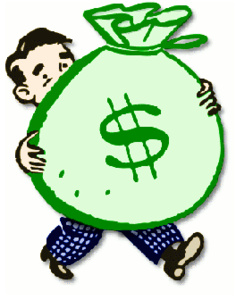 ASCAP and BMI, the two major US agencies that collect music performance royalties, are pushing to establish new royalties from online music and video stores. They want to begin collecting a performance royalty for downloads of songs and videos that include music.
ASCAP and BMI, the two major US agencies that collect music performance royalties, are pushing to establish new royalties from online music and video stores. They want to begin collecting a performance royalty for downloads of songs and videos that include music.
Of course it's not as though songwriters aren't already getting paid for downloads. They receive a mechanical royalty each time a song is downloaded and a synchronization fee if their composition is used in a TV show or movie.
In other words it works like CD and DVD sales.
The added royalties would essentially charge consumers twice. Once to cover the distribution and then again for the right to play the file.
John Potter, Executive Director of the Digital Media Association (DiMA) told CNet "This is a turf battle. They are saying, 'The songwriters aren't getting paid.' Baloney. Songwriters are getting paid. They're paid sync rights and (mechanical) rights. They aren't getting paid for the public performance in a download because there is no public performance in a download."
DiMA's position is shared by many other organizations, including Entertainment Software Association (ESA), the Motion Picture Association of America (MPAA), the National Association of Recording Merchandisers (NARM), the Entertainment Marketing Association (EMA), and the Independent Film and Television Alliance (IFTA).
So far lawmakers and the courts also back the position that there is no performance to collect royalties on.
Performance royalty collectors are also looking to charge each time a 30 second preview clip, frequently used to sell music in online stores, is played.
This seems like a particularly bad idea since it would discourage services like iTunes from offering previews, potentially resulting in a lot of lost sales.











